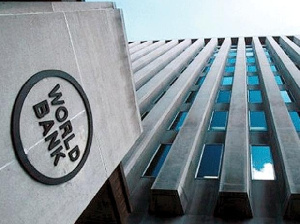CBN reveals tricks used by fraudsters, warns bank customers to protect accounts

Due to the rising cases of fraudulent activities in the country, the Central Bank of Nigeria (CBN) has asked bank customers to educate themselves and their children so they do not fall victim to these scammers.
According to the apex bank, this will help customers to protect their money from such criminals.
In a message at the 2024 Global Money Week (GMW) celebration recently held in Abuja, Philip Ikeazor, the deputy governor in charge of Financial System Stability (FSS), said young people should be taught how criminals dupe unsuspecting members of the public of their hard-earned money.
His said: “The theme for this year’s edition is ‘Protect your Money, Secure your Future’, and it captures the importance of learning, from an early age, to always think about your future when making financial decisions and plan accordingly.
“It emphasizes the importance of not only making money, but understanding frauds and scams, saving, and investing for your future.
“Equipped with such skills at this young age will enable you achieve financial independence and a financially secure future.”
The CBN director continued that there are different tricks scammers employ to carry out their unscrupulous activities, and bank customers need to know them.
He said: “It is vital to know the types of frauds and scams, how to respond to scammers, and various ways to protect your money online and offline.
“This also implies knowing how to report to a bank if you do have an encounter with scammers or fraudsters. In essence, the financial decisions you make today and the education you acquire today have a huge impact on your future.
“Therefore, when you learn these skills at a young age and with consistent practice, you will have a brighter future. So, be smart about your money while you are still young; save, budget and become educated.”
Some of the tricks employed by fraudsters
CBN said a typical ploy used to lure people is for them to disclose their Personal Identification Numbers (PINs), Bank Verification Numbers (BVNs), and other bankable instruments such as credit and debit card credentials, Mobile Wallet accounts (the use of the mobile phone for the initiation, authorisation, and confirmation of the transfer of value out of a current, savings, or stored value account), among others.
CBN discloses on of the most common types of fraud and how to protect oneself.
Advance fee fraud
In a situation where you pay someone money expecting to receive something of greater value and then receive little or nothing in return.
It may involve the sale of goods or services, offering investments, loans, contracts, lottery winnings, heritages or many other ‘opportunities’.
The schemes rely on convincing you to respond to the invitation and send money to the trickster (in several instalments of increasing amounts) for various reasons. You end up with a loss, and the tricksters might use your personal information to impersonate you.
Warning signs to avoid falling victim
1. Money for inheritance and last will
2. Fake notices of lottery win
3. Fake online businesses (e.g. hotels, rental properties).
4. Purchase of real estate Conversion of foreign currency
5. Transfer of funds from over-invoiced contracts
6. Sales from products below market prices
7. Romance scams via emails, online dating services, instant messenger on social networking sites (pictures of an attractive person are posted, they establish a relationship, then ask for money)
Source: www.mynigeria.com





